2-28
#include<iostream>
using namespace std;
int main(){
char choice;
while(1)
{
cout<<"Menu:A(dd) D(elete) S(ort) Q(uit),Select one:";
cin>>choice;
if(choice=='A') cout<<"Dates has been added"<<endl;
else if(choice=='D') cout<<"Dates has been deleted"<<endl;
else if(choice=='S') cout<<"Dates has been sorted"<<endl;
else if(choice=='Q') break;
}
return 0;
}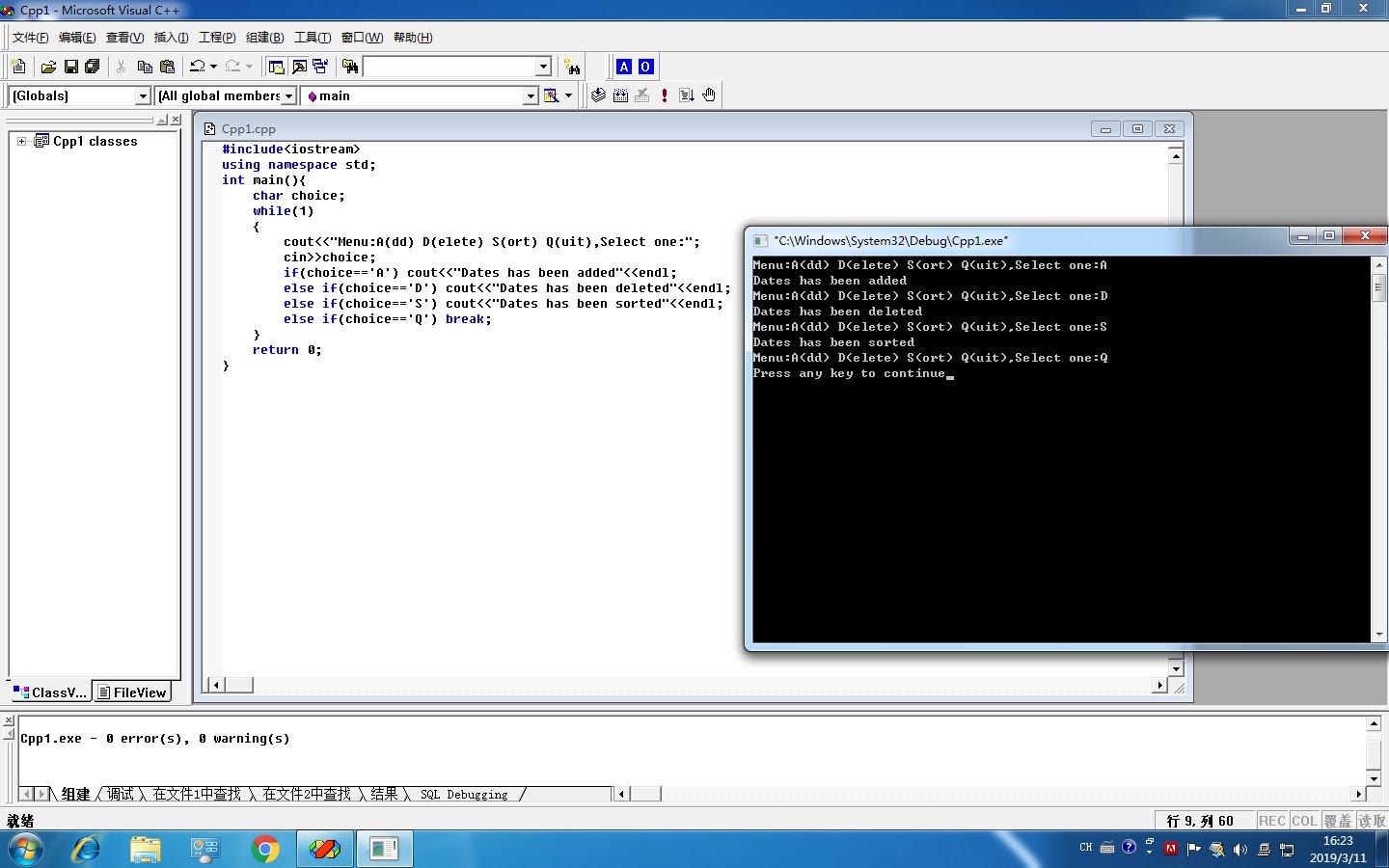
#include<iostream>
#include<cstdlib>
using namespace std;
int main(){
char choice;
while(1)
{
cout<<"Menu:A(dd) D(elete) S(ort) Q(uit),Select one:";
cin>>choice;
switch(choice)
{
case 'A': cout<<"Dates has been added"<<endl;break;
case 'D': cout<<"Dates has been deleted"<<endl;break;
case 'S': cout<<"Dates has been sorted"<<endl;break;
case 'Q': exit(0); break;
default : cout<<"no such choice"<<endl;
}
}
return 0;
}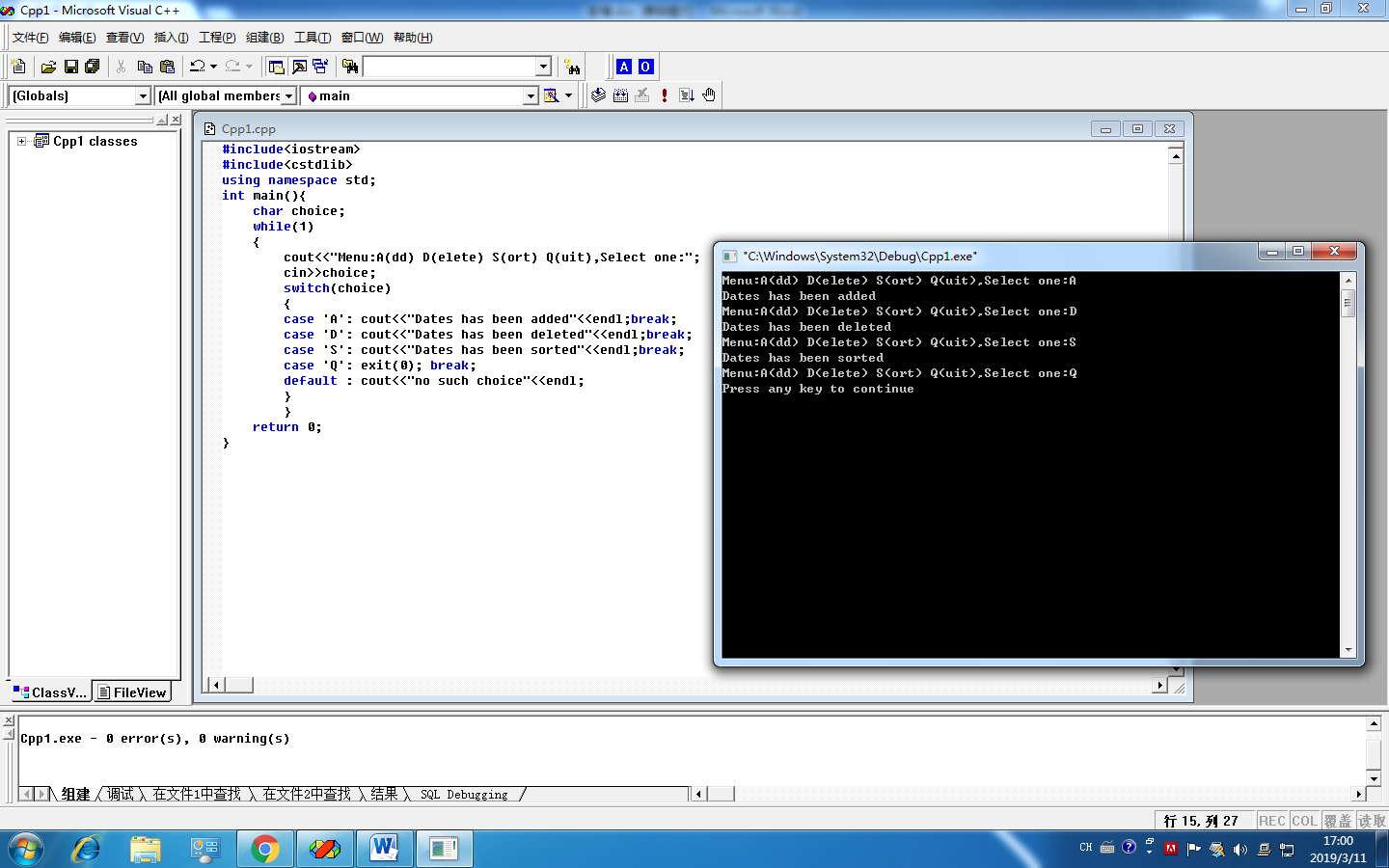
2-29
#include<iostream>
#include<cmath>
using namespace std;
int main(){
int i,m,n,a;
for(i=2;i<=100;i++)
{
a=1;
m=sqrt(i);
for(n=2;n<=m;n++)
{
if(i%n==0)
{
a=0;
break;
}
}
if(a==1) cout<<i<<" ";
}
return 0;
}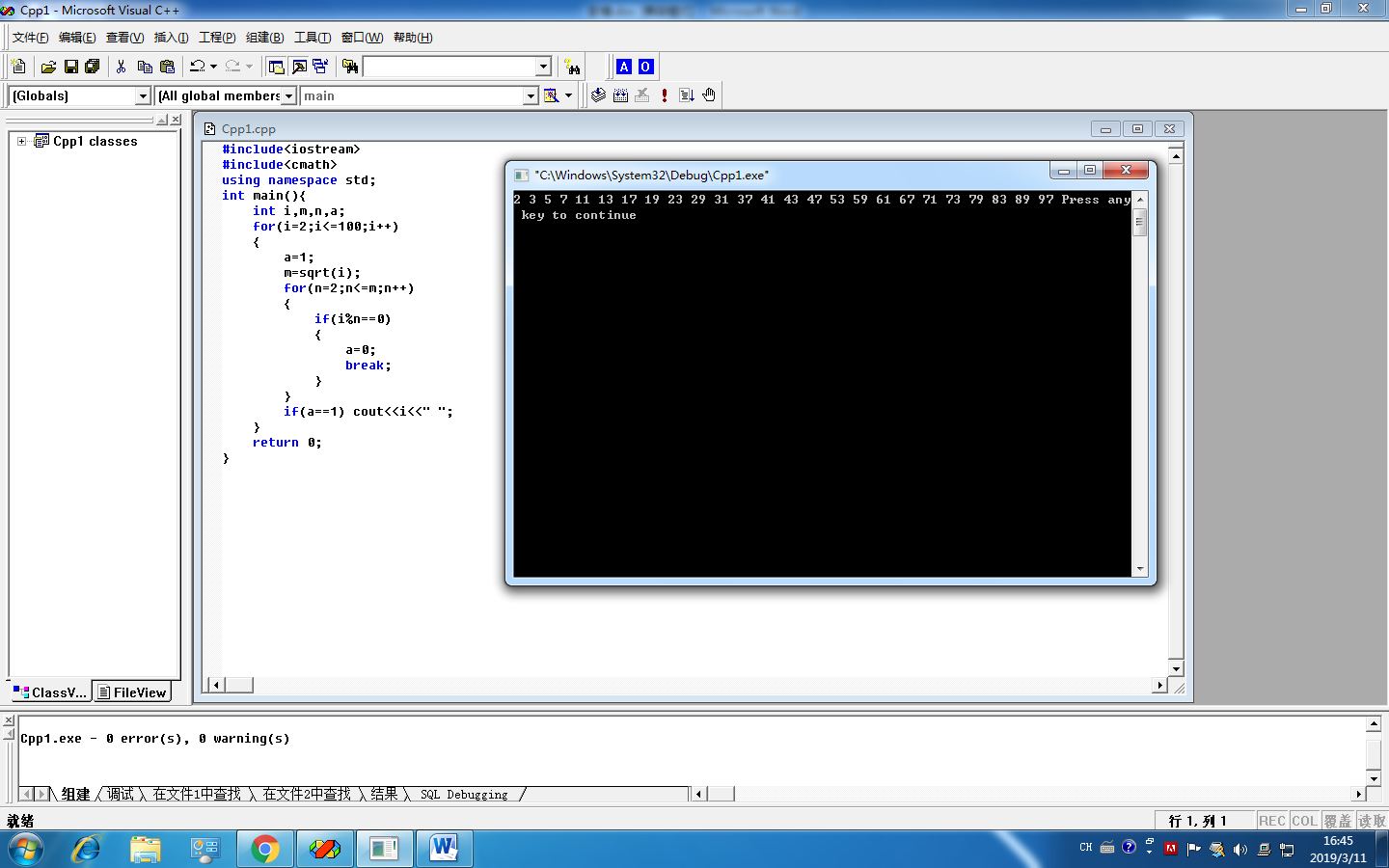
#include<iostream>
#include<cmath>
using namespace std;
int main()
{
int a,i,m=1,n;
do{
a=2;
n=0;
i=sqrt(m);
if(m==1) n=1;
else
{
while(a<=i)
{
if(m%a==0)
{
n=1;
break;
}
else a++;
}
}
if(n==0)
cout<<m<<" ";
m++;
}while(m<=100);
return 0;
}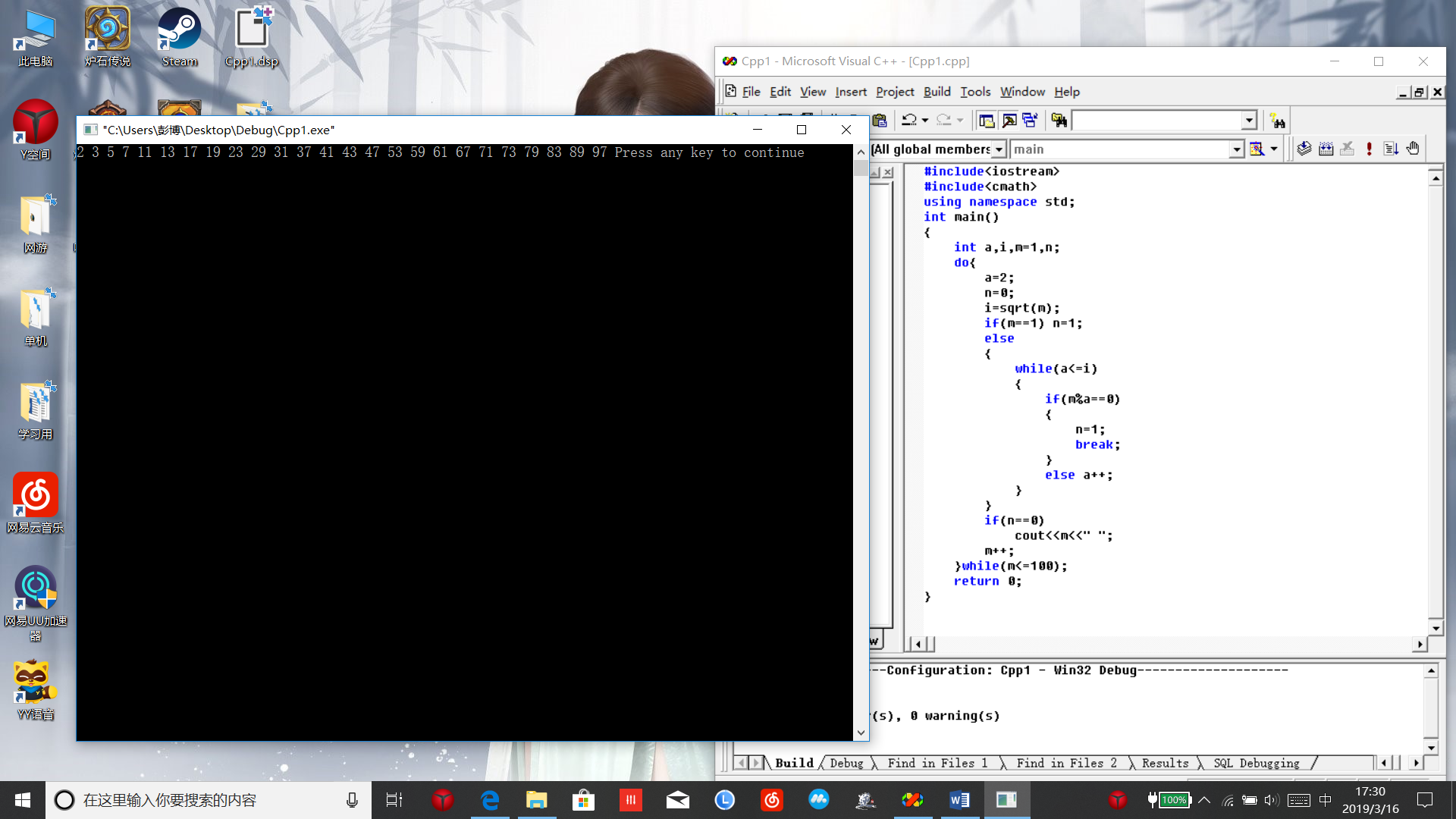
2-32
#include<iostream>
using namespace std;
int main(){
int n=66,i,m=1;
while(m)
{
cout<<"Please guess the number(1-100):";
cin>>i;
if(i>n)
cout<<"bigger than number"<<endl;
else if(i<n)
cout<<"smaller than number"<<endl;
else if(i==n)
{
cout<<"you are right"<<endl;
m=0;
}
}
return 0;
}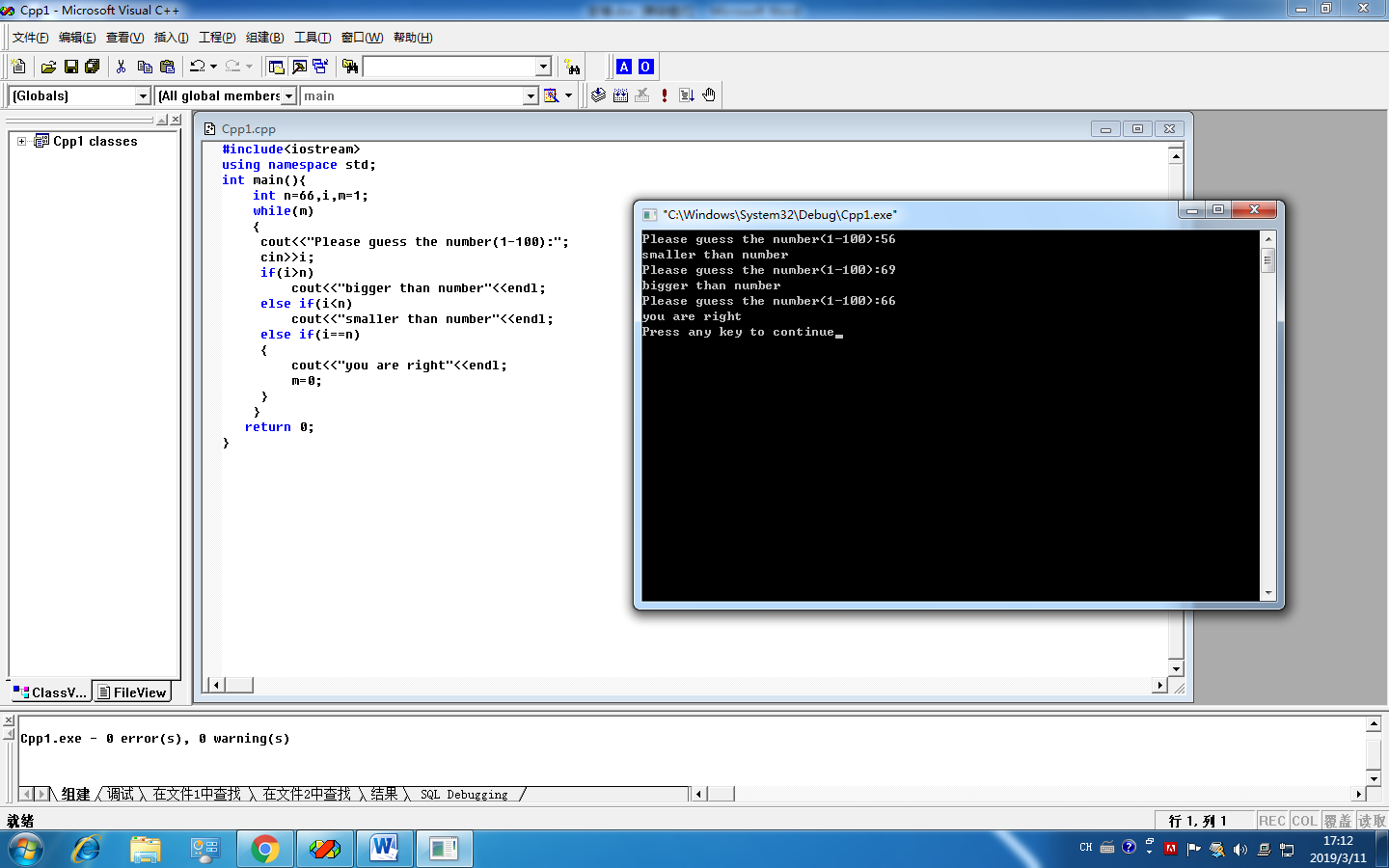
#include<iostream>
using namespace std;
int main()
{
int n=66,i,t=1;
do
{
cout<<"Please guess the number(1-100):";
cin>>i;
if(i>n)
cout<<"bigger than number"<<endl;
else if(i<n)
cout<<"smaller than number"<<endl;
else if(i==n)
{
cout<<"you are right"<<endl;
break;
}
}while(t=1);
return 0;
}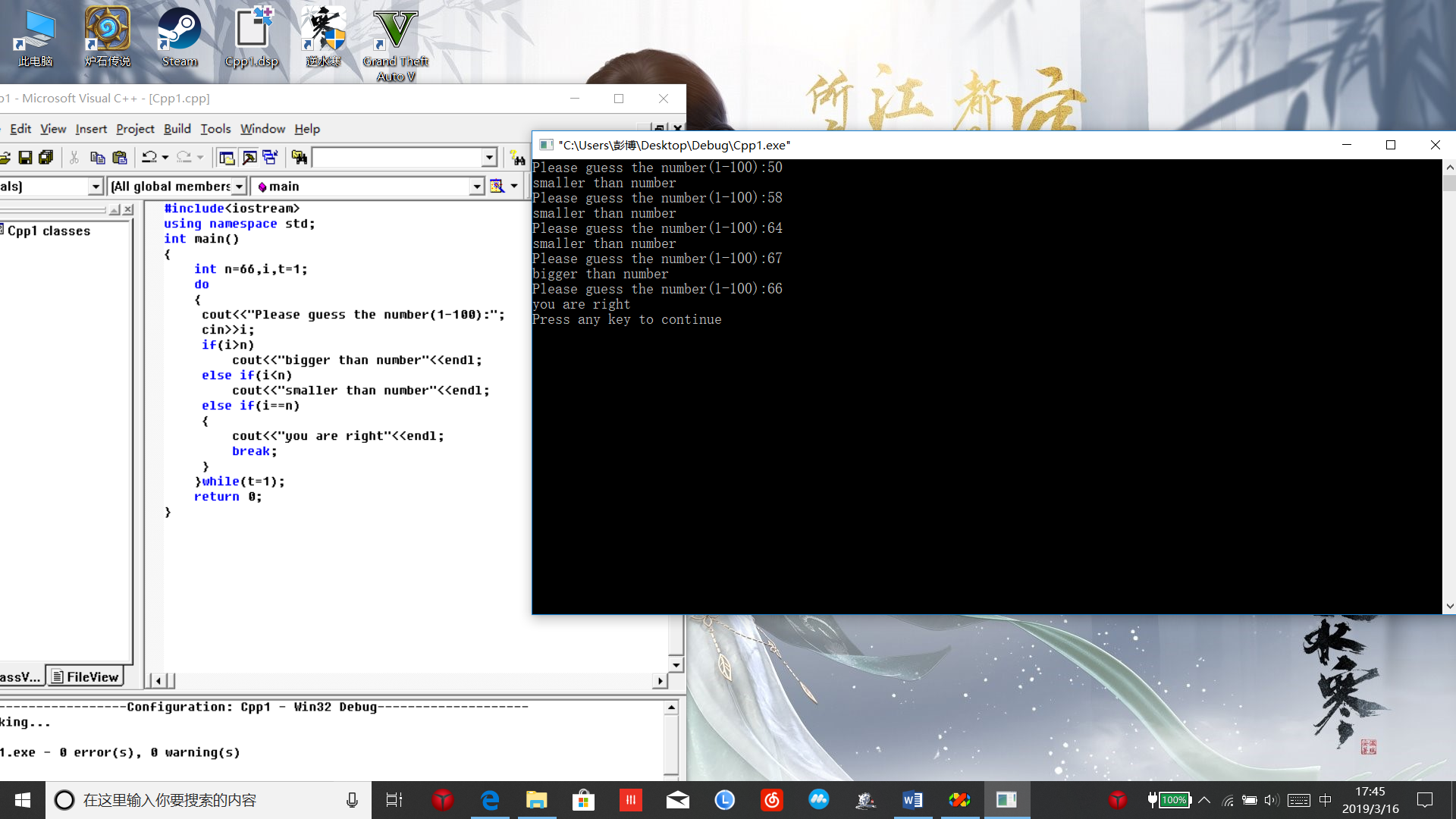
2-34
#include<iostream>
using namespace std;
int main()
{
int m,n,i,a=0;
for(m=1;m<=5;m++)
{
for(n=m+1;n<=4;n++)
{
for(i=n+1;i<=5;i++)
{
cout<<m<<n<<i<<endl;
a++;
}
}
}
cout<<a<<endl;
return 0;
}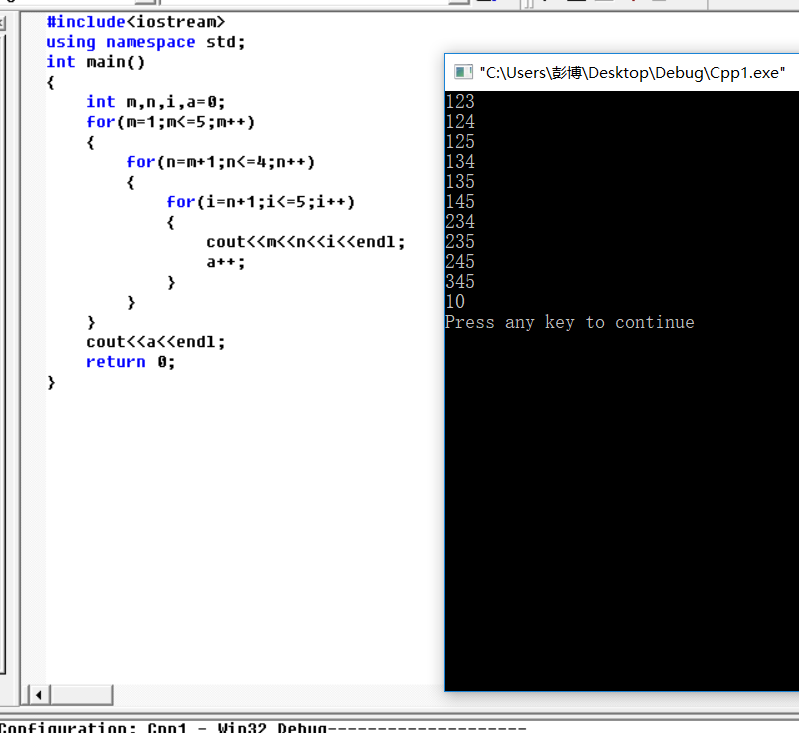
1、上学期因为经常使用for循环导致对do--while和while形式使用十分生硬,甚至是想不起来使用。
2、经常出现可以用很简单方式解决的问题却要用很多不必要的代码,简单来说就是废话太多。
3、明显感觉C++的输出和输入要比c更简洁明了,更为方便。